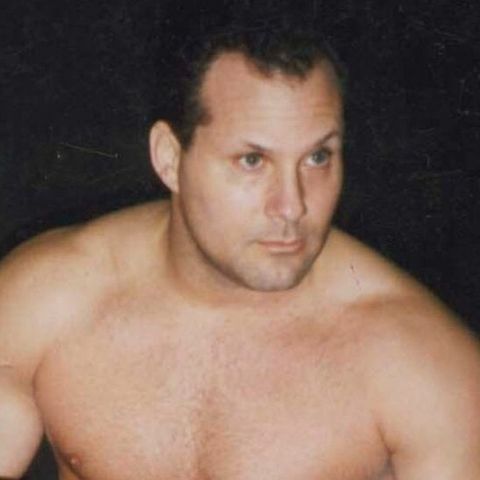"Behind the Mat: The Jody Malenko Chronicles Shoot"

Descarga y escucha en cualquier lugar
Descarga tus episodios favoritos y disfrútalos, ¡dondequiera que estés! Regístrate o inicia sesión ahora para acceder a la escucha sin conexión.
"Behind the Mat: The Jody Malenko Chronicles Shoot"
Esta transcripción es generada automáticamente. Ten en cuenta que no se garantiza una precisión absoluta.
Descripción
Step into the untold stories of wrestling with "Behind the Mat: The Jody Malenko Chronicles." In this rare and unedited interview, Jody Simon, famously known as Jody Malenko, offers an...
mostra másGet ready to dive deep into the world of professional wrestling with "Behind the Mat: The Jody Malenko Chronicles." In this rare and unfiltered interview, Jody Malenko shares his untold stories and insights into the wrestling industry. From the heartbreaking tragedies that have rocked the sport to the intense training methods that shaped some of the greatest wrestlers of all time, Jody offers a candid look at what it takes to survive and thrive in the squared circle. Whether you're a longtime fan or new to the world of wrestling, this interview will leave you with a newfound appreciation for the art, the athletes, and the legacy of professional wrestling.
Introduction and Setup (00:00 - 01:38)
- The interview begins with technical difficulties due to someone forgetting a laptop, preventing the playing of music or the intro. The hosts, Eric Danger Nine Heist and Bobby Pro, joke about it. Jody Simon (aka Jody Malenko) is introduced as the guest.
- The intro music finally plays, and they banter about the inconvenience of long intros.
- Jody mentions they just finished a documentary, expressing relief at having a break.
- Guy Metzger's announcement is mentioned, with some humorous complaints about the announcement process.
- They note the absence of Bobby’s laptop, leading to a more freestyle approach for the interview.
- The conversation shifts to serious topics, particularly the tragedy of Team Foxcatcher, where wrestler David Schultz was killed by John du Pont. Jody expresses awareness but notes he wasn’t deeply involved in that circle.
- They reflect on the numerous tragedies in the wrestling world, with Jody mentioning frequent calls from his brother about wrestler deaths.
- They discuss the distinction between pro wrestling as entertainment and “real wrestling,” with Jody emphasizing the blurred lines in public perception.
- The conversation delves into wrestling culture, touching on the secrecy and seriousness with which the wrestling business used to be guarded.
- Jody shares stories about wrestling culture, including how it was perceived and protected from outsiders. He mentions a cartoon that humorously depicted the lengths to which wrestlers would go to protect the business.
- The conversation turns to wrestling personalities, particularly the Iron Sheik. Jody shares various anecdotes about Sheik’s life, career, and struggles with addiction, including a story about being asked to procure drugs for him.
- They discuss Sheik’s reputation as both a legitimate tough guy and a great heel (villain) in wrestling.
- The discussion shifts to training methods and techniques, particularly those influenced by Carl Gotch, a legendary catch wrestler.
- Jody explains how Gotch’s training routines, including the use of a deck of cards for conditioning, became foundational in wrestling and martial arts circles.
- The conversation explores the global influence of strong style wrestling, particularly its development in Japan by wrestlers like Antonio Inoki and others trained by Carl Gotch.
- Jody reflects on Gotch’s later years, his life in the U.S., and his impact on Japanese wrestling. He notes how Gotch was revered in Japan and how his legacy was cemented there.
- The importance of wrestling psychology and storytelling is discussed, with Jody emphasizing how great wrestlers like Ric Flair and Ricky Steamboat could captivate audiences with their in-ring psychology.
- They discuss the differences between past and present wrestling, noting how modern wrestling often lacks the deep storytelling that characterized earlier eras.
- The conversation moves into the economics of wrestling, particularly the challenges of making a living outside of major promotions like WWE.
- Jody talks about the decline of wrestling territories and how the consolidation of the industry under WWE affected wrestlers’ livelihoods. He shares personal experiences of wrestling in Japan and the financial stability it offered compared to the uncertain pay in the U.S.
- Jody discusses his training under Ken Shamrock, sharing the challenges and expenses associated with learning professional wrestling.
- He humorously reflects on the tough lessons learned and the physical toll that training took on him and others.
- The topic of unionization in wrestling is brought up, with Jody explaining the difficulties wrestlers faced in trying to organize for better rights and protections.
- He notes that efforts to unionize were often met with strong resistance from promoters, leading to a lack of long-term security for wrestlers.
- Jody reflects on his retirement from wrestling, discussing the physical limitations that prevent him from performing at the level he once did.
- He talks about the importance of knowing when to retire and the difficulty some wrestlers face in letting go of their careers.
- The interview concludes with Jody expressing gratitude to his wife, daughters, and friends for their support during the documentary project.
- There is a humorous exchange about birthday gifts and cultural slang, leading to a light-hearted end to the conversation. The interview wraps up with mentions of upcoming projects and plans.
Información
Copyright 2024 - Spreaker Inc. an iHeartMedia Company
